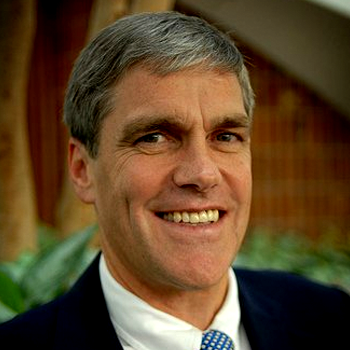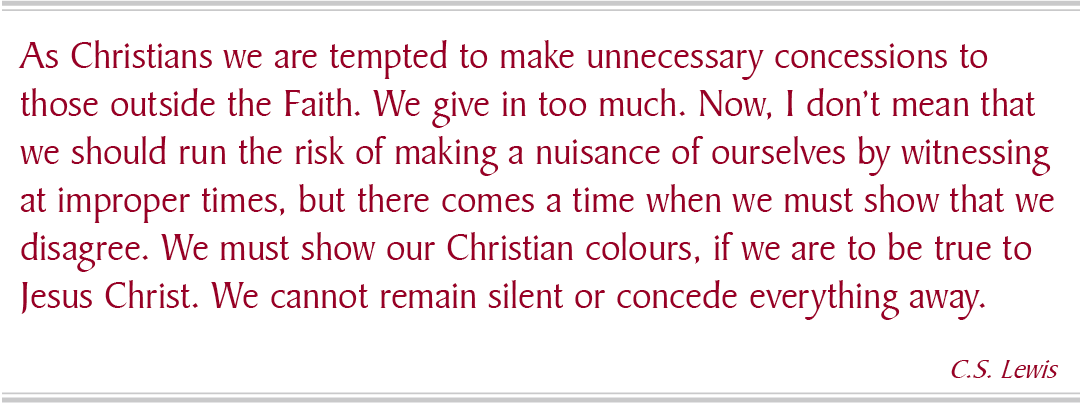Back to series



Evangelization: Sharing the Good News with Delight
Click here to open a Print - Friendly PDF
When God sent His Son Jesus Christ into the world, He didn’t do it to condemn the world but to save the world through Him (John 3:17). Jesus came to rescue precious souls from sin and death and to bring us hope and a future. The name Jesus means Savior, and He was totally successful in His mission!
To evangelize means simply to share “good news.” From the Greek word evangelize we get the word angel, which means messenger. When the angel announced the birth of Jesus to the shepherds on that first Christmas, he came to evangelize them: “Do not be afraid. I bring you good news of great joy that will be for all the people. Today in the town of David a Savior has been born to you; he is Christ the Lord” (Luke 2:10–11).1
In the Great Commission Jesus called every disciple to share the Good News of Jesus Christ: “Therefore go and make disciples of all nations, baptizing them in the name of the Father and of the Son and of the Holy Spirit, and teaching them to obey everything I have commanded you. And surely I am with you always, to the very end of the age” (Matt. 28:19–20).
Early in His ministry Jesus said, “Follow me [a disciple is a Christ follower], and I will make you fishers of men” (Matt. 4:19). From this we see that the end result of discipleship is to be a fisher of one’s fellowmen. Later in the New Testament we see that all Christ followers have been equipped through the Holy Spirit to be witnesses of Jesus Christ (Acts 1:8) and to be His ambassadors here on earth (2 Cor. 5:20).
When we have good news—whether it’s about an amazing person we’ve met, a new job, a new home, or an incredible vacation we’ve just had, we don’t have to be encouraged to tell our family and friends. We all like to share good news, and, if it’s well received, it encourages our hearers.
Throughout the Gospels, when people met Jesus Christ, they told other people about Him. Think of the Samaritan woman at the well in John 4. We’re told many people believed because the woman shared what she’d seen, heard, and experienced—the transforming power of Jesus. In the book of Acts, starting with the 120 disciples in the Upper Room, the early disciples turned the world “upside down” through evangelization—sharing the Good News of Jesus Christ.
Today we need to learn afresh how to evangelize. A recent Barna study showed that only 3 percent of sixteen- to twenty-nine-year-olds have a positive view of evangelical Christians! Instead of drawing people to Jesus, we’ve turned them away from Him!
Sharing the Good News of Jesus Christ should not be something we dread. It can be something we love to do, flowing naturally from the power of the Holy Spirit in our lives.
Where do we start a vital evangelism campaign for and in America? I suggest we ask God to renew our vision, faith, courage, and action.
Vision
Lord, I pray, renew our vision of Your love for us and for the lost. But there’s more to this prayer: Lord, give us a clearer understanding of Your eternal purpose and plan.
God’s Love for the Human Race
Here’s the Good News: “For God so loved the world that he gave his one and only Son, that whoever believes in him shall not perish but have eternal life” (John 3:16). God doesn’t want anyone to perish but all to come to repentance (2 Pet. 3:9). God has “reconciled us to himself through Christ,” and He has entrusted to Christ followers this amazing message of reconciliation (2 Cor. 5:18). In the first few chapters of Acts, God has given us a model of how this love and power works in practice.
 In Acts 1 we see 120 disciples hidden away in an upper room. They knew they had been commissioned to be witnesses of the resurrection, but they had no power or vision. Then, as recorded in Acts 2, the Holy Spirit came and filled them—changing everything. They were empowered and transformed to do extraordinary things, and these people turned the world upside down. Just think, it started with only 120 disciples! How did this happen? I believe there are two keys.
In Acts 1 we see 120 disciples hidden away in an upper room. They knew they had been commissioned to be witnesses of the resurrection, but they had no power or vision. Then, as recorded in Acts 2, the Holy Spirit came and filled them—changing everything. They were empowered and transformed to do extraordinary things, and these people turned the world upside down. Just think, it started with only 120 disciples! How did this happen? I believe there are two keys.
First, in Acts 2 we witness Pentecost when the disciples were filled with the Holy Spirit. From that moment on, the disciples began to evangelize the world with the message of redemption through Jesus Christ.
Born into a wonderful Christian family, I came to faith in Christ when I was very young. I certainly had the Holy Spirit, but I was not filled with the Holy Spirit. That happened on February 14, 1980, in a powerful encounter with God. I was dramatically transformed and fell head over heels in love with Jesus Christ, so much so that I only wanted to please and glorify Him. Also the Bible came alive to me. I couldn’t put it down, and I desperately wanted to evangelize my friends! I was filled with the Holy Spirit, and since then I have been filled again and again and again (Eph. 5:18). As D.L. Moody said, “I need to keep on being filled with the Holy Spirit because I leak!”
It’s the Holy Spirit who pours God’s love into our hearts (Rom. 5:5), and this love compels us to lay down our lives in order to carry out the mission (2 Cor. 5:14–15). And it’s the Holy Spirit who empowers us to be witnesses of the Good News of Jesus Christ to lost and broken people (Acts 1:8).
As Christ followers, we desperately need to ask God to keep on filling us with the Holy Spirit (Luke 11:9–13). As Billy Graham said, “It’s not an option for a Christian to be filled with the Holy Spirit; it’s a necessity.”
God’s Plan of Redemption
The Holy Spirit also helps us to understand God’s bigger picture of redemption. This, I believe, is the second key that will help Christ followers to evangelize America. Relative to eternity, our lives on earth are but a breath or a vapor (Ps. 39:5), but, while we are on earth, God has called us to complete a specific mission. To be effective in completing the work God has set for each of us (Eph. 2:10), we’re called to live as aliens and strangers on earth (1 Pet. 2:11). And our faithfulness to the work He has given us will be rewarded through eternity (2 Cor. 5:10).
God has enabled me to understand this bigger picture through the demise of close family members. Through the brokenness caused by the death of my youngest son, Alex, in 2005, followed two months later by the death of my sister Jax, eternity has become very real to me. Scripture says God has “set eternity in the hearts of men” (Eccl. 3:11), and often brokenness will release this understanding. While it is certainly true that God wants us to glorify Him by living abundant lives here and now, we do that by having our eyes and hearts fixed on eternal things (2 Cor. 4:18), on the things above (Col. 3:1–3). Moses prayed, “Teach us to number our days aright, that we may gain a heart of wisdom” (Ps. 90:12). Having an eternal perspective helps us to set correct priorities for our days on earth.
C.S. Lewis said,
If you read history, you will find that the Christians who did the most for the present world were just those who thought most of the next. The Apostles themselves, Wilberforce and the English Evangelicals who abolished the slave trade, all left their mark on Earth, precisely because their minds were occupied with heaven. It is since Christians have largely ceased to think of the other world that they have become so ineffective in this. Aim at Heaven and you will get earth thrown in; aim at earth and you will get neither.2
In Acts 3 and Acts 4, we see how this perspective influenced the actions of the early disciples. In Acts 3 a man who has been crippled for forty years is healed in Jesus’ name as Peter and John are going into the temple. The city is in uproar on account of this healing, and Peter and John are dragged before the religious leaders. In Acts 4 I note some key statements. In verse 12 we’re told that salvation comes only through Jesus Christ, and in verse 13 we’re informed that evangelization can come through uneducated, ordinary people who know Jesus! By God’s grace and the power of the Holy Spirit, everybody can and should be evangelizing.

In Acts 4:18 the religious leaders basically say to Peter and John, “Look, unless you stop speaking about Jesus Christ, we’re going to kill you.” And in verse 20 they respond with these amazing words, “We cannot help speaking about what we have seen and heard.” Again, to paraphrase, they’re saying, “Kill us if you want, but what we’ve seen and heard is so incredible that we have to share it with other people, even if it means our losing our lives in the process!”
What did they see and hear that they were willing to die for? Well, we know that they saw and walked with Jesus on earth. They saw how He lived. They saw His example; they heard and saw what the kingdom of God looked like. They also saw Jesus die on the cross, and they saw Him alive again in His resurrected body. They saw that life does not end when our physical bodies die; there is much more to come! And of course they heard all that Jesus had spoken when He was with them. He spoke about the kingdom of God, and He also spoke a lot about the afterlife. He spoke about heaven, and He spoke about hell.
Regrettably, we’ve come to a place in our society where we don’t want to hear about hell. It’s uncomfortable and not “politically correct.” Whatever we feel about hell, the key question is, what is the truth? Do we believe Jesus was telling the truth when He warned people about eternal judgment? If we believe hell is a reality, it should fundamentally change how we go about our lives. If we know the end of the story, and other people don’t, I think it’s fair to say that we’ve got an obligation to tell them about it. Not out of guilt, but out of a genuine concern and compassion for people, deep in our hearts. If a blind man was about to walk off a cliff, how hard would we try to persuade him to change course? If he’s convinced he’s on the right path, we’d have to be strategic in how we persuaded him to take another course.
I believe God wants to give Christ followers a fresh and clear vision of His calling on our lives. When He told Joshua to go in and take the Promised Land, God gave him a clear vision. He defined the area of land to take and told him what he would need to carry out the task.
The Bible says, “Where there is no vision, the people perish” (Prov. 29:18 KJV). What is your vision for your life? Why are you living here on earth (assuming you are living)?
I heard about an old man who was asked what he did first thing in the morning. He said, “The first thing I do in the morning is read the obituaries in the New York Times. If I’m not in it, I get up to face a new day!” What do you get up to do each morning?
Maybe a better question is what is God’s will for you here on earth? After all, as Christ followers, we’re called to live for God’s will, right? Our fulfillment is to do God’s will.
The kingdom of God will break out across America if the church is renewed and Christ followers are mobilized once again to evangelize the lost and perishing: friends, neighbors, relatives, and work colleagues.
What is your vision to obey the Great Commission, to make disciples of all nations? What are you doing about the people God has put in your life?
Jesus clarified and confirmed His mission on earth when He said, “For the Son of Man came to seek and to save what was lost” (Luke 19:10). And He says to us, “As the Father has sent me, I am sending you’ (John 20:21).
Faith
The second area that needs renewal is our faith. “Faith comes from hearing the message, and the message is heard through the word of Christ” (Rom. 10:17). As we hear God’s message and heart for the lost through Scripture, faith is stirred in our hearts. And faith leads to victory! (1 John 5:4).
 The big question is, are we really hearing the message? When asked what God requires, Jesus replied, “The work of God is this: to believe in the one he has sent” (John 6:29). Do we believe enough in the things we have seen and heard that we would die in order to tell them to other people?
The big question is, are we really hearing the message? When asked what God requires, Jesus replied, “The work of God is this: to believe in the one he has sent” (John 6:29). Do we believe enough in the things we have seen and heard that we would die in order to tell them to other people?
Mohammed was an Iraqi Muslim who came to faith in Christ. The gospel so impacted his life that he felt compelled to share the Good News with his family. “I have happiness; I cannot stop myself,” he told his wife, Liyla. “I must share this truth with my family.” But his words were not received well, and a family member murdered him for leaving the Islamic faith. Widowed and with a young child to care for, his young wife was encouraged to flee Iraq along with other Christians. But Liyla decided to stay and witness about Jesus Christ for whom her husband had given his life. As a result of her faith and courage, other Muslim women are coming to faith in Christ!3
There is an amazing YouTube clip of a magician named Penn, who shares how impressed he was by a man who gave him a New Testament and Psalms. He goes on say that although he is an atheist, he has never had a problem with Christians proselytizing because, “If they believe what they say about heaven and hell, why aren’t they telling us more about them?” And, of course, he has a great point. Not that Christians should go about telling people they’re going to hell (that rarely works!), but we should be more active in sharing the Good News about Jesus Christ our Savior.
Scripture clearly indicates that the evidence of our faith will be seen by how we live and what we do (John 14:21, 23; James 2:22). Again, this comes through the work of the Holy Spirit. We need to keep asking Him to fill us with His love and power, enabling us to be witnesses for Christ (Eph. 5:18).
Courage
I also challenge you to ask God, by the power of the Holy Spirit, to renew your courage. When commanding Joshua to take the land they had been given, God told him three times to “be strong and very courageous!”
Courage is not the absence of fear or pain but a willingness to do what is right whatever the cost. Jesus modeled this perfectly on the Mount of Olives just before His crucifixion. Aware of what was coming, He was in mental and emotional agony, so much so that He started to sweat blood. He cried out, “Father, if you are willing, take this cup from me; yet not my will, but yours be done” (Luke 22:42). This is a total surrender of His will to the will of God.
To obey God’s Great Commission to evangelize requires courage and involves sacrifice as priorities shift and we focus our time and energy on following Christ and becoming fishers of men. What’s more, an enemy scheming against us has come to kill, rob, and destroy (John 10:10). Praise God, we do have the victory in Christ, but we need to recognize and engage in the battle. As Paul said to Timothy, we need to have the attitude of a soldier, athlete, and farmer (2 Tim. 2:1–7).
“For our struggle is not against flesh and blood, but against the rulers, against the authorities, against the powers of this dark world and against the spiritual forces of evil in the heavenly realms” (Eph. 6:12).
And all the sacrifice is more than worth it both today and through eternity. When the church fails to obey the Great Commission, Satan and the spiritual forces of evil in the heavenly realms go unopposed, thereby causing darkness in and confusion over every societal arena, including politics, the economy, morality, and the media. But when the church obeys Jesus’ instructions to go and evangelize, to share the Good News about Him and the kingdom of God, Satan is displaced from the heavenly realm. This leads to the kingdom of God breaking out in every area of society.
Action
In 1865 William Booth had a vision from God in which he saw a raging sea with masses of perishing souls in the water. Then he saw a huge rock with a platform rising out of the water, and some of the people were being saved from the raging sea. But his heart broke because so few people who had been saved from drowning had any concern for those who were still perishing! From this vision, Booth started the Salvation Army.
We need renewal in a fourth and final aspect: in taking action. It’s so easy to hear the message and then do nothing about it.

I love the film Schindler’s List, in particular, the powerful ending, when Schindler—who has risked his life to save so many Jews in the Holocaust—realizes after the war that he could have done more. He could have saved more victims from the gas chambers. Will there be a time, I wonder, at the end of this age, when we realize we could have done more to evangelize the lost?
| Notes 1. Unless otherwise noted, Scripture quotations are from the New International Version, 1984. 2. C.S. Lewis, Mere Christianity (1952; repr., New York: Touchstone, 1996), 119. 3. Voice of the Martyrs, September 2011. |
|||

Gerard Long
PastorGerard Long is a Christian minister, evangelist, author, motivational speaker, and former HSBC banking executive. In 2006, Gerard decided to leave behind his highly paid banking career and join Alpha USA, whose mission is to serve local churches in presenting the Gospel through the Alpha course. He was executive director of Alpha course USA before retiring in 2014 to work for Awakening to God ministries.

 COPYRIGHT: This publication is published by C.S. Lewis Institute; 8001 Braddock Road, Suite 301; Springfield, VA 22151. Portions of the publication may be reproduced for noncommercial, local church or ministry use without prior permission. Electronic copies of the PDF files may be duplicated and transmitted via e-mail for personal and church use. Articles may not be modified without prior written permission of the Institute. For questions, contact the Institute: 703.914.5602 or email us.
COPYRIGHT: This publication is published by C.S. Lewis Institute; 8001 Braddock Road, Suite 301; Springfield, VA 22151. Portions of the publication may be reproduced for noncommercial, local church or ministry use without prior permission. Electronic copies of the PDF files may be duplicated and transmitted via e-mail for personal and church use. Articles may not be modified without prior written permission of the Institute. For questions, contact the Institute: 703.914.5602 or email us.
-
Recent Podcasts
Fix Your Eyes Upon Jesus
by Steven Garber, Aimee Riegert on June 27, 2025Perhaps the most prominent and current figure who...Read More
-
An Honest Search for God – Dr. Jay Medenwaldt’s Story
by Jana Harmon, Jay Medenwaldt on June 20, 2025
-
Moving Beyond Forgiveness to an Abundant Life
by Robert Saucy, Aimee Riegert on June 13, 2025
-
Recent Publications
Are Miracles Possible
by Christopher L. Reese on June 1, 2025The 21st century has provoked many conversations and...Read More
-
Is God Just, Not Fair?
by Jennifer Rothschild on May 15, 2025
-
Seeking Dietrich Bonhoeffer
by Joseph A. Kohm on April 29, 2025
0
All Booked
0.00
All Booked
0.00
All Booked
24720
The Adventure of Joining God in His Work Live Online Small Group 7:00 PM CT
https://www.cslewisinstitute.org/?event=the-adventure-of-joining-god-in-his-work-live-online-small-group-700-pm-ct&event_date=2025-09-16®=1
https://www.paypal.com/cgi-bin/webscr
2025-09-16

Next coming event
Days
Hours
Minutes
Seconds
The Adventure of Joining God in His Work Live Online Small Group 7:00 PM CT
On September 16, 2025 at 7:00 pmSpeakers

Gerard Long
Pastor
Team Members

Gerard Long
PastorGerard Long is a Christian minister, evangelist, author, motivational speaker, and former HSBC banking executive. In 2006, Gerard decided to leave behind his highly paid banking career and join Alpha USA, whose mission is to serve local churches in presenting the Gospel through the Alpha course. He was executive director of Alpha course USA before retiring in 2014 to work for Awakening to God ministries.





